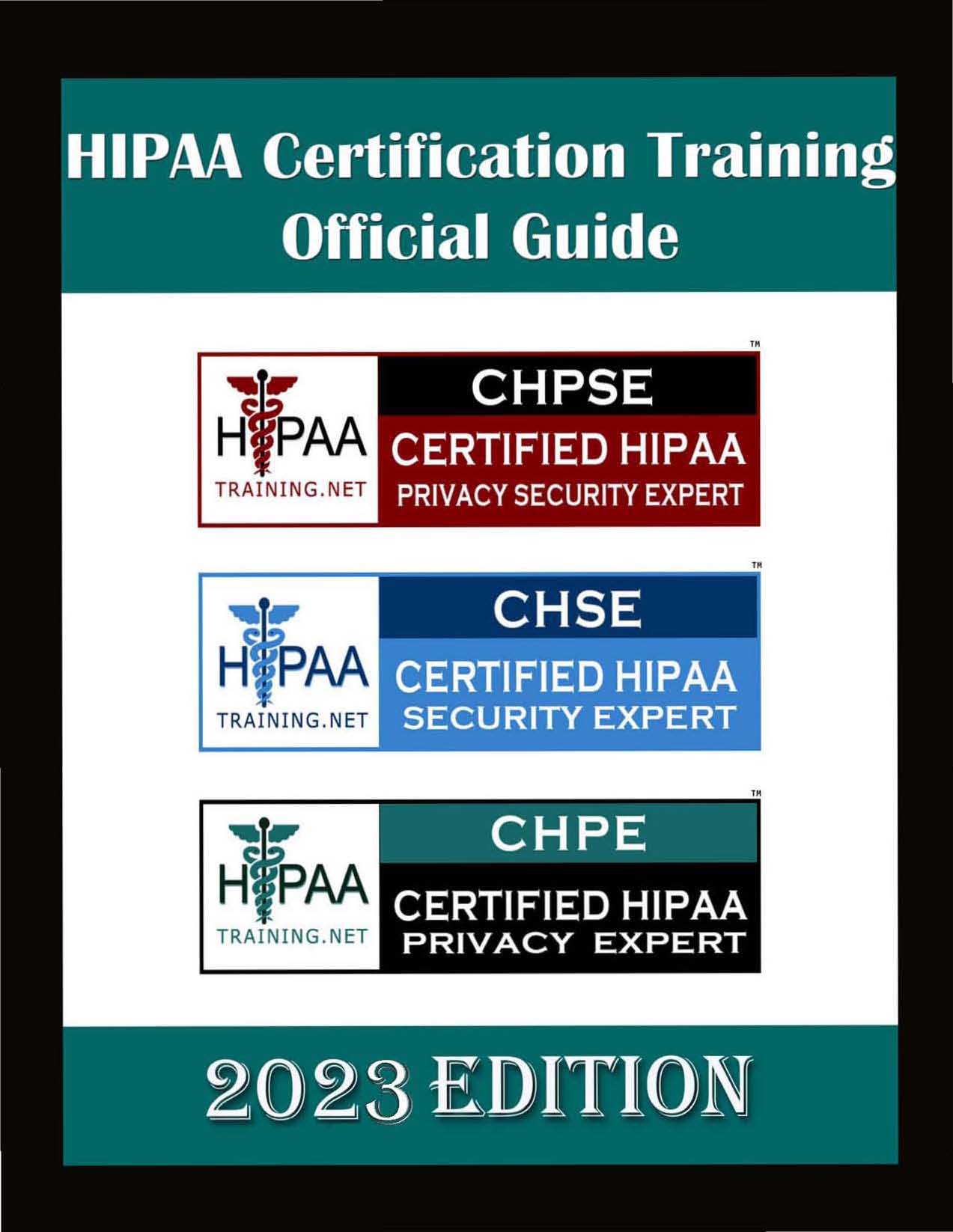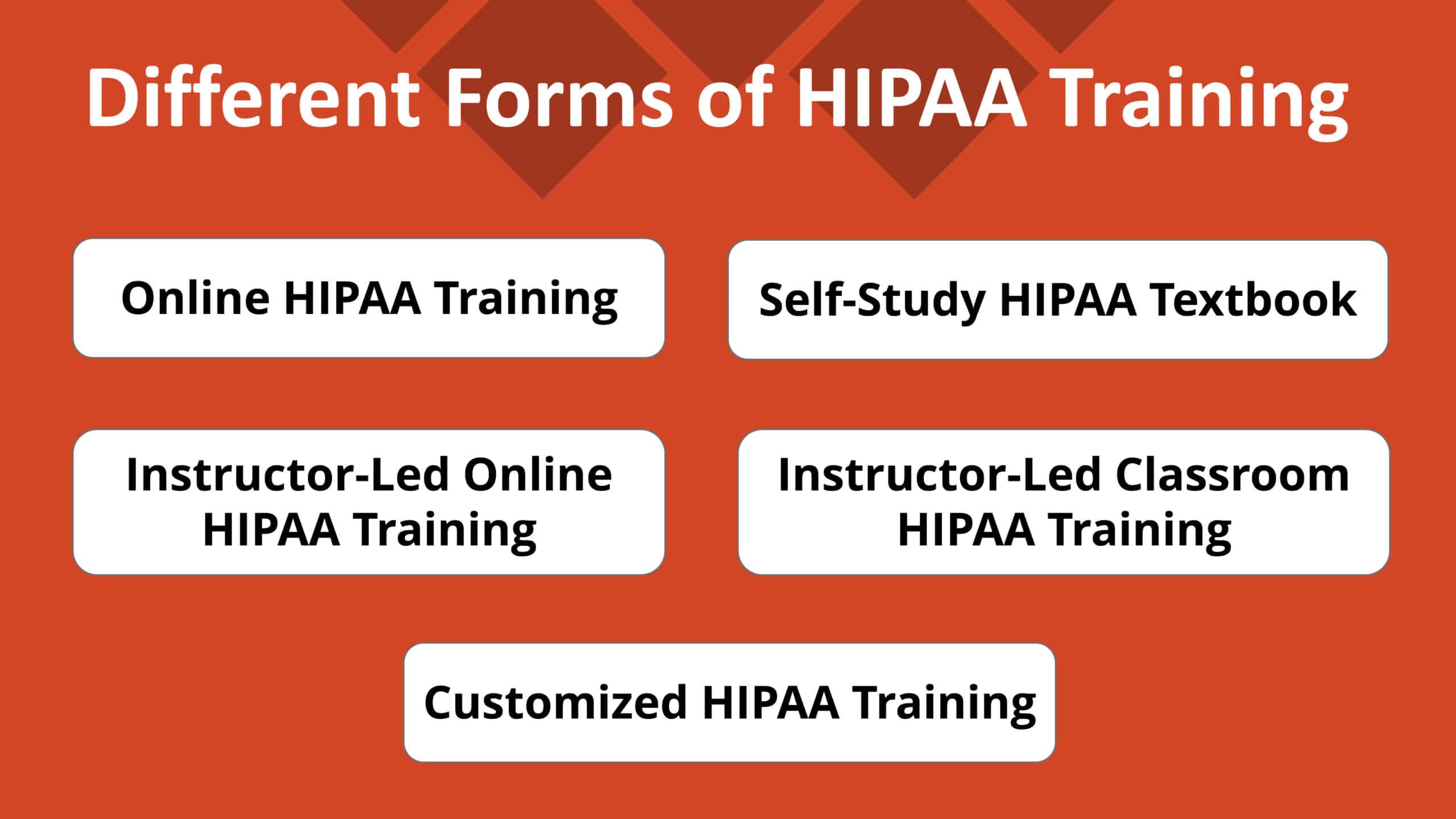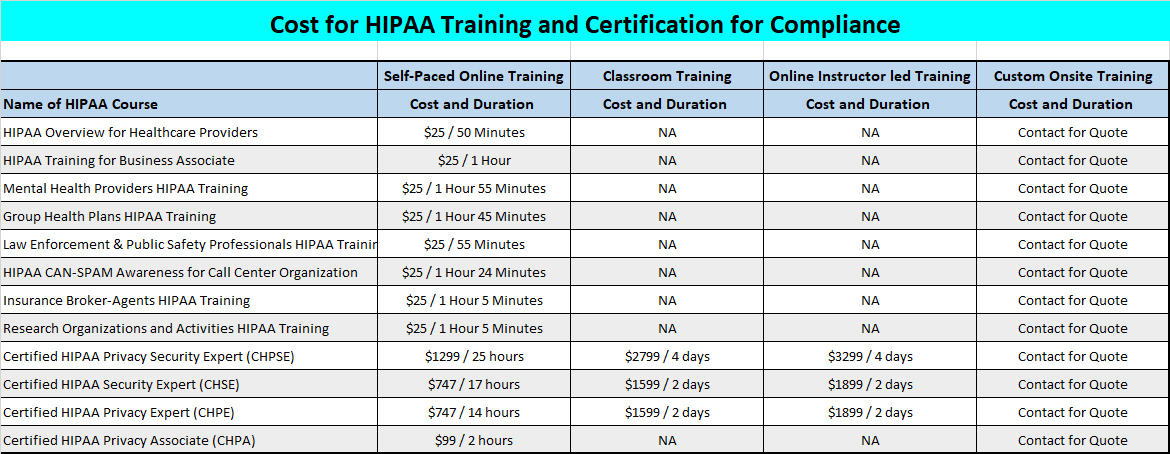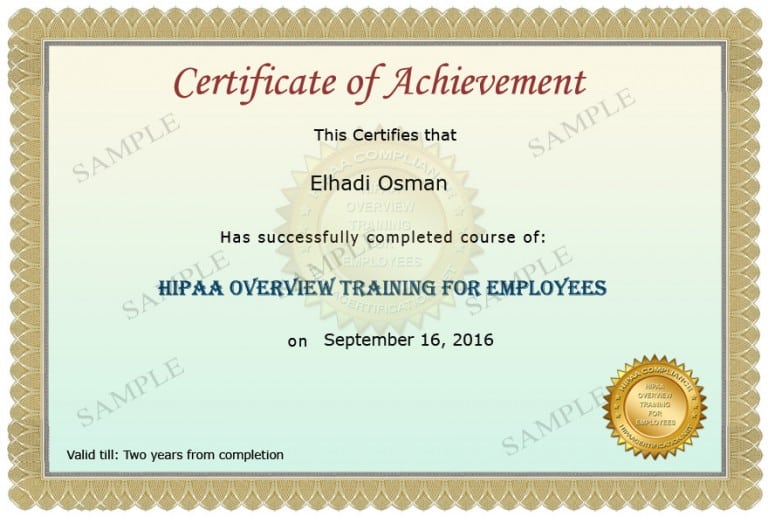 What is HIPAA Training?
What is HIPAA Training?
HIPAA training, which stands for the Health Insurance Portability and Accountability Act training, is a type of education or training program designed to inform individuals about the regulations and requirements outlined in the HIPAA legislation. This training is essential for healthcare professionals, such as doctors, nurses, administrative staff, and individuals and organizations that handle patient health information, including healthcare providers, health plans, and healthcare clearinghouses.
What are the Different Types of HIPAA Training?
HIPAA courses can be taken in various forms, such as in-person workshops, online courses, or written materials. The specific training requirements may vary depending on an individual's role and the organization's size and scope. It's essential for all individuals and organizations that handle protected health information (PHI) to ensure that their staff receive appropriate education to maintain compliance and protect patient privacy and security.
HIPAA education is divided into two categories:
- HIPAA Awareness Training for employees who have access to protected health information (PHI), but are NOT part of the HIPAA compliance team of the organization. The course explains how to recognize protected health information (PHI), proper uses and disclosures of PHI, how to keep PHI secure, and how to report a breach of PHI. The duration of this training is usually one to two hours. The cost start at $25 and go up to $99 for HIPAA credential like Certified HIPAA Privacy Associate (CHPA).
- HIPAA Compliance Training is for employees who are core HIPAA compliance team members who are involved in projects to ensure the organization is HIPAA compliant. The duration of the course can range from 12 hours to 25 hours, depending on which HIPAA Certification course is taken by the employee. The cost for these courses starts from $747. Different credentials are CHPSE, CHSE, and CHPE.
Which are Different Forms of HIPAA Courses?
 Online HIPAA Training
Online HIPAA Training
Discover the convenience and effectiveness of online training programs. The digital age has brought forth convenient online courses, offering flexibility for healthcare professionals to undergo training at their own pace. After course completion, students get the HIPAA Certificate.
Instructor-Led Classroom HIPAA Seminar
Instructor-led classroom training may be particularly beneficial for larger healthcare organizations or those that have complex compliance needs. However, it's essential to consider the logistics and costs of this type of training, such as scheduling, travel, and instructor fees. In-person sessions provide a structured environment for learning, allowing for direct interaction and clarification of doubts.
Ultimately, the choice between instructor-led classroom and other forms of training (such as online courses or webinars) depends on your organization's specific needs, resources, and preferences. It's essential to select the training method that aligns best with your goals and ensures that your organization remains compliant with HIPAA regulations.
Instructor-Led Online HIPAA Courses
In the dynamic landscape of healthcare, ensuring the confidentiality of patient information is paramount. Instructor-Led Online Training emerges as a transformative solution, combining the flexibility of online learning with the guidance of experienced instructors.
Self-Study HIPAA Textbook
Organizations may provide written materials, such as HIPAA manuals or handbooks, for employees to study at their own pace. These materials typically include detailed information about HIPAA regulations and compliance requirements.
Customized Training
Some organizations opt to develop their own customized HIPAA learning programs tailored to their specific needs and HIPAA policies. These programs can address organization-specific procedures and guidelines.
What is the Cost of HIPAA Certification and Training?
The cost of HIPAA Awareness training for employees having access to PHI is usually around $25 per person for one one-hour course. The cost of HIPAA compliance training and certification for compliance staff starts from $747.
When choosing a training program, it's essential to consider your organization's specific needs, the training's quality and comprehensiveness, and the reputation of the training provider and which credential you earn after the HIPAA certification test. Be sure to factor in the costs of the training itself and any associated expenses, such as travel, materials, and certification fees.
For more details, visit Cost of the HIPAA Certification and Training.

How Often do All Employees require HIPAA Compliance Training?
HIPAA does not specify a specific frequency for HIPAA training. It is generally recommended that HIPAA compliance training be provided regularly to employees on an annual basis or based on the company's policy. Many organizations provide initial training for new employees and then offer periodic refresher courses, such as annually, to ensure that employees remain informed about HIPAA regulations and any updates or changes to compliance requirements.
Advantages of HIPAA Training
Providing HIPAA training to employees offers several advantages for healthcare organizations and their staff. Some of the key benefits include:
- Compliance: Ensuring that employees are well-versed in HIPAA regulations helps your organization remain compliant with the law, reducing the risk of legal penalties and financial consequences for violations.
- Data Security: Training equips employees with the knowledge and skills to safeguard patient health information. This reduces the risk of data breaches and unauthorized access to sensitive data.
- Patient Trust: Compliance with HIPAA demonstrates a commitment to patient privacy and security, building trust and confidence among patients, who are more likely to share information knowing it's protected.
- Reduced Liability: Properly trained employees are less likely to engage in actions that could violate HIPAA, reducing the organization's liability for breaches or mishandling of patient data.
- Improved Reputation: Compliance and a strong commitment to privacy can enhance the organization's reputation
Trained professionals are better equipped to handle patient information responsibly, leading to improved overall healthcare practices and patient satisfaction.
Common Misconceptions on HIPAA Courses
HIPAA courses are critical for understanding and ensuring compliance with healthcare privacy and security regulations. However, there are common misconceptions related to training for HIPAA:
One-Time Training is Sufficient: Some believe completing training once is enough. In reality, HIPAA compliance requires ongoing training and updates to stay current with changing regulations and best practices.
Training is Only for Medical Professionals: It is not exclusive to healthcare providers. It applies to anyone who handles protected health information (PHI), including administrative staff, IT personnel, and business associates.
Online Training is Inadequate: Online training can be just as practical as in-person training, provided it covers the necessary content. The choice between online and in-person training often depends on an organization's specific needs.
HIPAA Training is Optional: Training is not optional for organizations that handle PHI. It is a legal requirement, and failure to provide training can result in severe consequences for non-compliance.
HIPAA Training is Just About Privacy: HIPAA encompasses privacy and security rules. Training should cover not only patient privacy but also the security of electronic health records and systems.
Training is a One-Size-Fits-All Approach: Training should be tailored to an employee's role and responsibilities within the organization. Different job functions may require different levels of training.
HIPAA Compliance Training is Limited to the United States: While HIPAA is a U.S. law, it may also apply to international organizations and business associates who handle the healthcare data of U.S. residents. Compliance may have global implications.
It's essential to address these misconceptions and ensure that employees receive accurate and up-to-date HIPAA training to protect patient data and maintain compliance with the law.
By implementing these best practices for HIPAA training, your organization can build a strong foundation for HIPAA compliance, protect patient information, and reduce the risk of violations and associated consequences.

HIPAA Training FAQs
What is the Frequency of HIPAA Training Renewal?
The training policy of the company decides Training renewal frequency. Generally, it's advisable to undergo refresher courses annually to stay current with evolving regulations.
Is Online Training Sufficient for Compliance with Training Requirements?
Yes, online Training can be sufficient if it meets regulatory requirements and is regularly updated. However, supplementing with workshops or seminars is recommended for a holistic approach.
How Can Employees Ensure HIPAA Compliance in Daily Practices?
Employees play a crucial role. Regularly reinforce the importance of privacy, secure data handling, and promptly reporting potential breaches.
Are There Specialized Training Programs for Management on HIPAA?
Yes, specialized programs are tailored for management roles, focusing on leadership responsibilities in maintaining HIPAA compliance.
HIPAA Training is not just a regulatory requirement; it's a commitment to upholding the integrity of healthcare. Stay informed, invest in comprehensive training, and contribute to a healthcare ecosystem prioritizing patient privacy and data security.
Visit our FAQ page for HIPAA Training and Certification.
Contact us now to discuss your HIPAA training and other HIPAA compliance needs. You can reach us at 515-865-4591 or Bob(at)HIPAAtraining(dot)net
